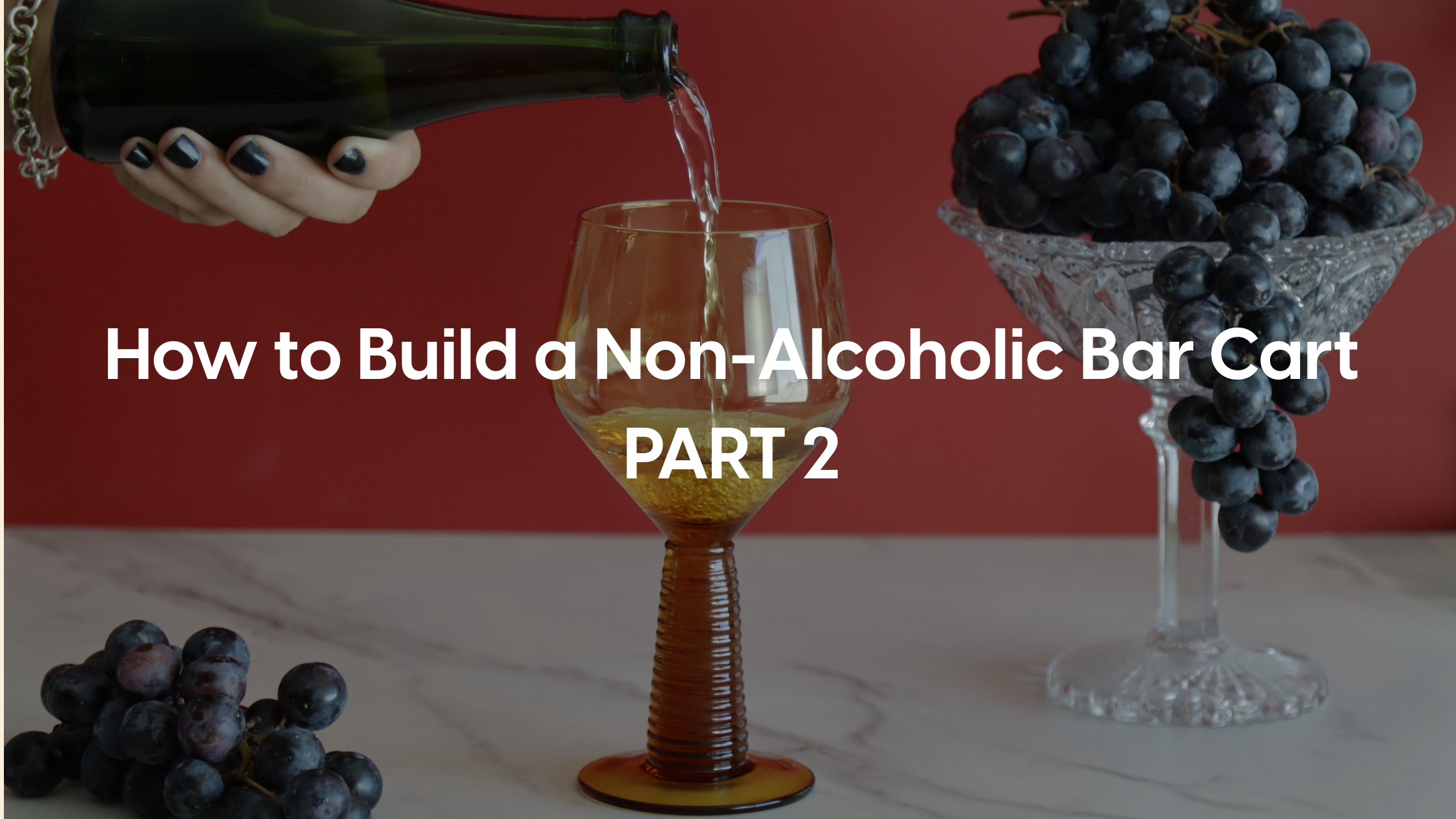From tantalizing your taste buds to supporting your gut, vinegar uplifts your alcohol-free cocktail experience.
When I am crafting my mocktails, one of my favorite ingredients to use is vinegar. While vinegar is typically associated with savory dressings and marinades, its unique flavor profile and health benefits make it an excellent addition to mocktails.

Vinegar adds that extra ‘je ne sais quoi’
The tangy and acidic nature of vinegar adds a depth to mocktails that I often find is missing with simple combinations of juice and carbonated water. When mixing up a non-alcoholic cocktail, replicating the piquency of the alcohol can be a challenge. I’ve found that adding as little as a teaspoon of vinegar (per serving) to a mocktail adds a complexity that no amount of lemon or lime juice can replicate.
Vinegar is an inexpensive way to up your mocktail game
Non-alcoholic spirits, cocktails and mixers are blowing up, and they are not cheap. I’m not going to lie, I enjoy my $7/can, pre-made, adaptogenic, non-alcoholic cocktails. I don’t necessarily want to spend that everytime I want a booze-free sip. I value the high quality ingredients and complex formulation of these products. I also love finding inexpensive ways to create delicious and complex mocktails. With some extra effort, I could buy a 32oz bottle of apple cider vinegar for $7, and a few simple ingredients and concoct over 150 mocktails at home.
Boosts your health while satisfying your palate
Apple cider vinegar (ACV) is the most celebrated vinegar for its health benefits such as, digestive support and blood sugar regulation. Raw apple cider vinegar ‘with the mother’ is a naturally fermented food that contains beneficial microorganisms, making a happy gut microbiome. ACV’s natural acidity can help raise stomach acid levels which support your body’s ability to break down food.
Research has shown that the acetic acid in ACV slows the release of glucose in the bloodstream and supports muscles in using glucose more quickly. When drunk in close proximity to a meal (ideally before), it blunts the glucose spike typically seen when consuming sugars and starches.
Oh so many options
There are so many types of vinegar to play with. The basic vinegars are apple cider, balsamic, rice wine, champagne, and white wine, each offering its own distinct taste. If you’d like to add more flavor and complexity, you can try a flavored vinegar that has been infused with fruits, herbs or vegetables.
If you’re looking for an easy vinegar-based mixer, shrubs are a great place to start. A shrub is a centuries old recipe for ‘drinking vinegar’ that typically consists of vinegar, fruit, herbs, and sugar. Mix a few tablespoons with some carbonated water for a simple non-alcoholic beverage.
Two tips on using vinegars in mocktails
- Experiment with Flavors: Try different types of vinegar to add unique touches to your mocktails. They will each have different sweet/sour profiles depending on the type of vinegar and brand.
- Balance the Acidity: Vinegar is very tart! Find the right ratios of vinegar and other flavors (sweet, bitter, salty, etc) to create a balanced drink.
- Start with a little. You can always add more!
While vinegar is not necessarily as sexy as the latest non-alcoholic spirit, I believe that it deserves a prominent place in your at-home mocktail recipes. Vinegar’s flavor, accessibility, nutrient profile and versatility makes it a must have for any non-alcoholic bar cart.
Want to learn how to craft delicious mocktails? Join one of Lila's public classes. You can also make non-alcoholic cocktails with your team through a corporate team-building workshop.











